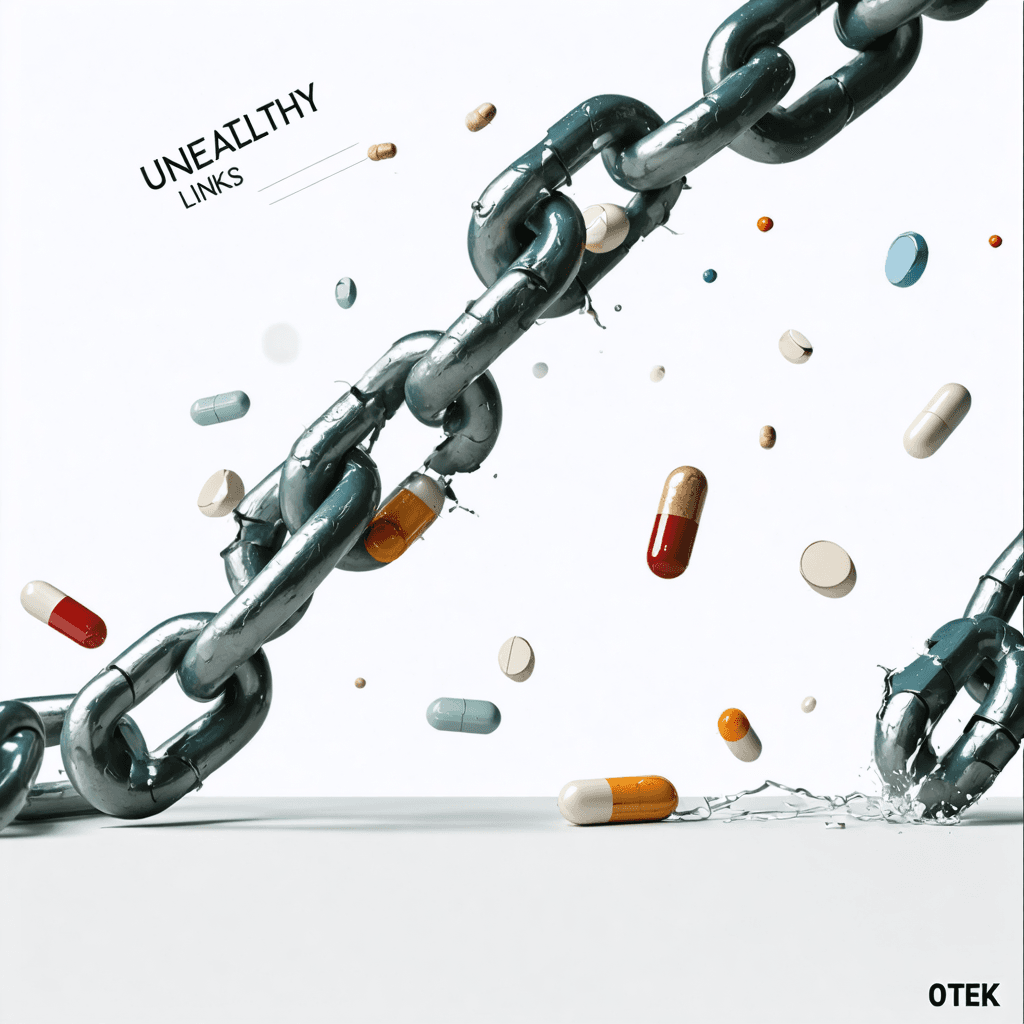Unhealthy Links: How Supply Chain Disruptions Impact Your Well-being
The bread aisle is bare. Your go-to vitamin brand is out of stock. And that crucial kitchen appliance you ordered? Delayed indefinitely. We've all felt the frustration of empty shelves and shipping delays, but the ramifications of these disruptions extend far beyond mere inconvenience. They impact a facet of our lives often overlooked: our well-being.
The Domino Effect: From Factory Floor to Your Front Door
A supply chain, in its simplest form, is the journey a product takes from raw materials to your hands. It's a complex network of farmers, factories, shipping containers, and storefronts, all working in intricate synchronicity. When one link in this chain falters, the ripple effects are felt throughout the system.
Recent years have exposed the fragility of these interconnected networks. A global pandemic, geopolitical unrest, and climate change have all converged, creating a perfect storm of supply chain disruptions. The consequences? Empty shelves, inflated prices, and delayed deliveries.
While these disruptions are undoubtedly frustrating, their impact on our well-being runs deeper than we might realize.
The Mental Toll of Uncertainty and Scarcity
Imagine this: you walk into your local grocery store, hoping to stock up on essentials, only to find shelves sparsely stocked. This experience, sadly familiar to many, can trigger feelings of stress, anxiety, and even fear.
The psychology behind this is rooted in our primal instincts. Scarcity triggers a sense of threat, activating our stress response and potentially leading to impulsive behaviors like hoarding. This constant uncertainty can seep into our daily lives, affecting our mood, sleep patterns, and overall mental health.
Beyond the Empty Plate: Access to Healthcare and Essential Goods
The impact of supply chain disruptions extends far beyond grocery stores. Consider the healthcare industry, where timely access to medications, medical devices, and personal protective equipment is critical. Delays in these supply chains can have life-altering, even life-threatening, consequences.
The same applies to essential goods like hygiene products, cleaning supplies, and even clean water. Disruptions in these areas can exacerbate existing inequalities and disproportionately affect vulnerable populations.
Taking Control: Building Resilience in Uncertain Times
While the current situation might seem daunting, there are ways to navigate these disruptions and mitigate their impact on our well-being. Here are a few steps you can take:
- Stay Informed: Keep abreast of global events and their potential impact on supply chains.
- Plan Ahead: Avoid last-minute shopping sprees. Instead, anticipate your needs and stock up gradually.
- Explore Alternatives: Be open to trying new brands or products if your usual choices are unavailable.
- Practice Gratitude: Focus on the resources you do have and cultivate a sense of appreciation.
- Connect with your Community: Support local businesses and connect with neighbors to create a sense of shared resilience.
Knowledge is Power: Navigate the Future of Global Systems
The interconnected nature of our world demands that we become more aware of the systems we rely on. Understanding the complexities of global supply chains empowers us to make informed decisions, navigate disruptions effectively, and build a more resilient future for ourselves and our communities.
Want to learn more about the intricate workings of global systems and how they impact your daily life? Explore a wide array of courses and resources on 01TEK, your gateway to accessible and empowering education.
If I find 10,000 ways something won’t work, I haven’t failed. I am not discouraged, because every wrong attempt discarded is often a step forward.
Thomas Edison



